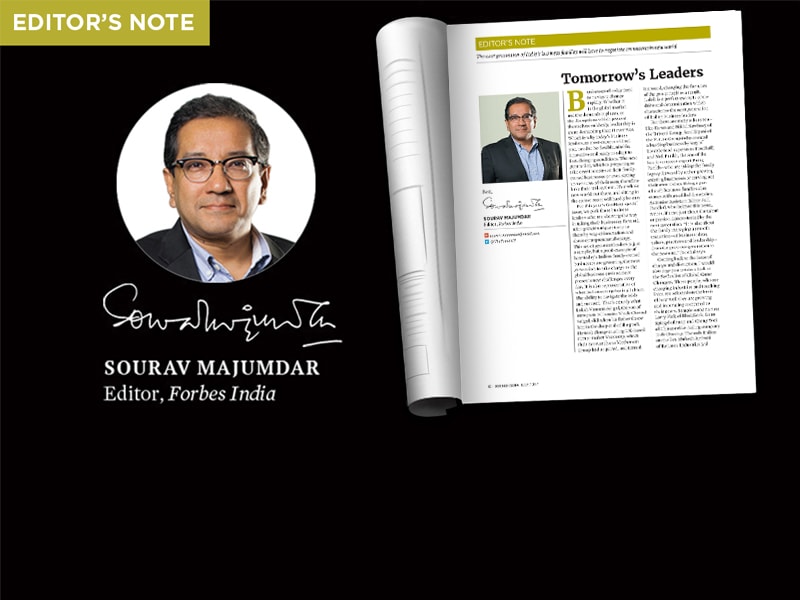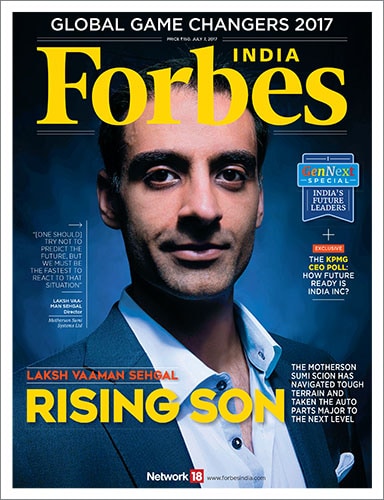
Tomorrow's leaders
The next generation of India's business families will have to negotiate an uncertain new world


But there are many others too—like Tarun and Nikhil Sawhney of the Triveni Group, Avni Biyani of the Future Group (who created a bustling business by way of lifestyle food superstore Foodhall) and Neil Parikh, the son of the late investment expert Parag Parikh—who are taking the family legacy forward by either growing existing businesses or carving out their own niches. Being a part of such business families also comes with an added dimension. As Senior Assistant Editor Salil Panchal, who helmed this issue, writes, it’s not just about the talent or passion demonstrated by the next generation. “It is also about the family managing a smooth transition—of business ideas, values, practices and leadership—from the previous generation to the new one,” Panchal says.
Forbes India
Coming back to the issue of change and disruption, I would also urge you to take a look at the Forbes list of Global Game Changers. These people, who are changing industries and touching lives, are selected on the basis of how well they are growing and innovating compared to their peers. Sample some names: Larry Fink of BlackRock, Evan Spiegel of Snap and Cheng Wei of Chinese ride-hailing company Didi Chuxing. The only Indian on the list: Mukesh Ambani of Reliance Industries Ltd.
Best,
Sourav Majumdar
Editor, Forbes India
Email:sourav.majumdar@nw18.com
Twitter id:@TheSouravM
(This story appears in the 30 November, -0001 issue of Forbes India. To visit our Archives, click here.)
X





